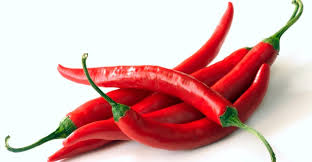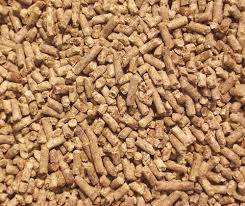Chili Pepper Powder Production and Sales (Local and Export) in Nigeria; The Feasibility Report.

Chilli pepper (Capsicum spp.) is one of the most important vegetables in the world. It has a rapidly growing period of 90 to 150 days while some species like the Capsicum annum (bell pepper) are true perennials. Chilli originated from the Americas with their cultivars now grown around the world because they are widely used as food and medicine.
Pepper (Capsicum spp.Capsicum annum and Capsicum frutescens) is a crop plant grown extensively under rain-fed conditions with very high yields when the rainfall is about 600 to 1250 mm. Pepper (Capsicum spp.) fruits vary in shape, color, pungency and texture, with C. annuum var. annuum L. being the most widely cultivated. The fruits are an important vegetable crop for the fresh market and processed products. Chilli pepper does well in climate with temperatures ranging between 18 to 27°C during the day and between 15 to 18°C during the night.
Pepper is an important agricultural crop not only because of its economic importance but also due to the nutritional and medicinal value of its fruits as well as being an excellent source of natural colours and antioxidant compounds.
It is the world’s second important vegetable, ranking after tomatoes and it is the most produced type of spice flavouring and colouring for food while providing essential vitamins and minerals. The nutritional value of pepper merits special attention. It is a rich source of vitamins A and E. Both hot and sweet peppers contain more vitamin C to prevent flu colds than any other vegetable crop.
Consumption of pepper accounts for about 20% of the average vegetable consumption per person per day in Nigeria. It is used extensively in food flavouring in the daily diet of over 165 million Nigerians irrespective of their socio-economic status. It is used in the preparation of soup and stew, which are among the major essential complements of staple foods based on cereals and root crops and also forms remedies for toothache and sore throat.
The market for the product is very widely spread and bulk of the household’s restaurants, eateries, caterers, and clubs use it regularly. The demand for the processed products is increasing day by day due to its convenience to handle and use. There are good export prospects as well.
This report is to examine the financial viability or otherwise of establishing a chili pepper powder production and packaging plant in Nigeria.
The production capacity of the proposed business is twelve (12) tons for chili pepper powder per day of three (3) shifts of eight (8) hours each working at eighty percent (80%) of the installed capacity in the first, second, third, fourth and fifth year of operations respectively.
Table of Contents
EXECUTIVE SUMMARY 1.0 Business Overview 1.1 Description of the Business 1.2 Vision and Mission Statement 1.3 Business Objective 1.4 Value Proposition 1.5 Critical Success Factor of the Business 1.6 Current Status of Business 1.7 Description of the Business Industry 1.8 Contribution to Local and National Economy 2. Marketing Plan 2.1 Description of product 2.2 Product Packaging and delivery 2.3 The Opportunity 2.4 Pricing Strategy 2.5 Target Market 2.6 Distribution and Delivery Strategy 2.7 Promotional Strategy 2.8 Competition 3. Production Plan 3.1 Description of the Location 3.2 Raw Materials 3.3 Production Equipment 3.4 Production Process 3.5 Production Cost 3.6 Stock Control Process 3.7 Pre-Operating activities and expenses 3.7.1 Operating Activities and Expenses 3.8 Project Implementation Schedule 4.0 Organizational and Management Plan 4.1 Ownership of the business 4.2 Profile of the promoters 4.3 Key Management Staff 4.3.2 Management Support Units 4.4 Details of salary schedule 5. Financial Plan 5.1 Financial Assumption 5.2 Start- up Capital Estimation 5.3 Source of Capital 5.4 Security of Loan 5.5 Loan Repayment Plan 5.6 Profit and Loss Account 5.7 Cash Flow Analysis 5.8 Viability Analysis 6.0 Business Risks and SWOT Analysis 6.1 Business Risks 6.2 SWOT Analysis
Project Specification:
Additional Info
Get this Report
Direct bank transfer
To order the report, Please do pay the sum of ₦100,000 into
Account Name : Foraminifera Market Research Ltd
Account Number : 274 20 569 37
Account Name : Foraminifera Market Research Ltd
Account Number : 101 76 603 95
Account Name : Foraminifera Ventures
Account Number : 011 66 066 32
Make your payment directly into our bank account. Please use your Order ID as the payment reference. Your order will not be shipped until the funds have cleared in our account.
Instructions
After payment call us on 01 -29 52 413 / 08033782777 or email us at foraminiferamarketresearch@yahoo.com with the payment details. After payment confirmation, the soft copy of the report would be sent to you within 24 hours.



